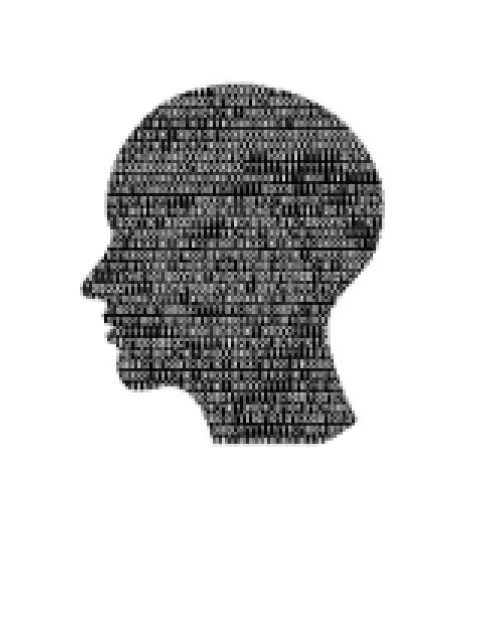

- Are you interested in disability rights?
- Do you want to improve your theoretical knowledge and understanding of disability?
- Do you want a short programme that is both academic and practical?
- Are you passionate about human rights?
The graduate diploma in disability studies is designed for people who want to improve their theoretical knowledge of disability and disability rights.
Programme structure
The programme is 30 ECTS and is organised as one year of part-time study.
The programme is made up of:
- Mandatory courses, 26 - 30 ECTS.
- Restricted electives, 0 - 6 ECTS
Specialisations
Students choose between the following specialisations:
- Diploma in disability studies
- Diploma in disability studies and public administration
Organisation of teaching
This programme is taught in Icelandic but most textbooks are in English.
The programme is taught through distance learning.
Main objectives
After completing the programme, students should, for example:
- be familiar with the history, development and theoretical foundation of disability studies.
- be familiar with the main theories and perspectives in disability studies and able to distinguish between them.
- be able to distinguish between cultural manifestations of disability and the main challenges that disabled people face in their lifetimes, from the critical perspective of disability studies.
Other
Students who complete the diploma with a first class grade may apply for the Master's programme.
BA, BS, BEd degree or equivalent.
Disability studies: 30 ECTS credits have to be completed for the qualification. The degree consists of 30 ECTS credits in core courses in Disability Studies.
Disability studies and public administration: 32 ECTS credits have to be completed for the qualification. The degree consists of 26 ECTS credits in core courses and 6 ECTS credits in elective courses.
- Certified copies of diplomas and transcripts
Further information on supporting documents can be found here
Programme structure
Check below to see how the programme is structured.
- Year unspecified
- Fall
- Theories and Perspectives in Disability Studies
- The Life Span, Self and Society
- Spring 1
- Disability in Contemporary Culture
- Not taught this semesterHuman rights and disability
Theories and Perspectives in Disability Studies (FFR102F)
This course focuses on the historical development of theories and perspectives on disability. Emphasis will be on ideologies that have influenced policies, services and disabled people everyday lives and social participation (i.e. normalization, independent living and human rights conventions). Considerable time will be devoted to exploring the new discipline Disability Studies, its origins, main characteristics and relations to other scholarship. Different theoretical perspectives on disability will be examined and the influence of particular theoretical approaches on the development of disability theory. Theoretical discussion will be connected to the disabled people's movements, human rights (including the UN Convention on the Rights of Persons with Disabilities), national and international policies, law and the social situation of disabled people.
The Life Span, Self and Society (FFR302M)
The conditions and experiences of disabled people will be a central focus of this course with emphasis on the lifespan and main areas of everyday life such as family, education, employment and housing/homes. New Icelandic and international disability research will be explored as well as the forces which influence the identity formation of disabled children, youth and adults. Different theoretical approaches will be used to examine policy, law, services, the welfare system and disabled people's status and social situation in contemporary societies.
Disability in Contemporary Culture (FFR102M)
This course explores cultural reactions to disability and disabled people as well as examining the cultural representations and constructions of disability. Special emphasis will be on history, the role of media, popular culture, literature and arts in constructing, defining and representing images of disabled people. Topics also include disability art and culture, identity, femininity and masculinity. The cultural location and context of disability will be examined and how disability can be viewed as one of the aspects creating diversity in contemporary societies. The aim is that students will gain understanding and knowledge of the cultural origins of ideas about disability and will be able to relate them to theoretical perspectives in disability studies, current events and other fields of interest.
Human rights and disability (FFR104M)
The aim of this course is to provide students with knowledge and understanding of the human rights of disabled people, especially as these are articulated in the UN Convention on the Rights of Persons with Disabilities (CRPD) and national legislation. The course will examine the social and cultural understanding of disability developed within disability studies as well as discussing the ideology behind the CRPD. Special emphasis will be on equality and non-discrimination on the basis of disability in the CRPD, the EU directive on equal treatment and non-discrimination in employment, and Icelandic legislation.
- Fall
- FFR102FTheories and Perspectives in Disability StudiesMandatory (required) course10A mandatory (required) course for the programme10 ECTS, creditsCourse Description
This course focuses on the historical development of theories and perspectives on disability. Emphasis will be on ideologies that have influenced policies, services and disabled people everyday lives and social participation (i.e. normalization, independent living and human rights conventions). Considerable time will be devoted to exploring the new discipline Disability Studies, its origins, main characteristics and relations to other scholarship. Different theoretical perspectives on disability will be examined and the influence of particular theoretical approaches on the development of disability theory. Theoretical discussion will be connected to the disabled people's movements, human rights (including the UN Convention on the Rights of Persons with Disabilities), national and international policies, law and the social situation of disabled people.
Face-to-face learningDistance learningPrerequisitesFFR302MThe Life Span, Self and SocietyMandatory (required) course10A mandatory (required) course for the programme10 ECTS, creditsCourse DescriptionThe conditions and experiences of disabled people will be a central focus of this course with emphasis on the lifespan and main areas of everyday life such as family, education, employment and housing/homes. New Icelandic and international disability research will be explored as well as the forces which influence the identity formation of disabled children, youth and adults. Different theoretical approaches will be used to examine policy, law, services, the welfare system and disabled people's status and social situation in contemporary societies.
Face-to-face learningDistance learningPrerequisitesAttendance required in class- Spring 2
FFR102MDisability in Contemporary CultureMandatory (required) course10A mandatory (required) course for the programme10 ECTS, creditsCourse DescriptionThis course explores cultural reactions to disability and disabled people as well as examining the cultural representations and constructions of disability. Special emphasis will be on history, the role of media, popular culture, literature and arts in constructing, defining and representing images of disabled people. Topics also include disability art and culture, identity, femininity and masculinity. The cultural location and context of disability will be examined and how disability can be viewed as one of the aspects creating diversity in contemporary societies. The aim is that students will gain understanding and knowledge of the cultural origins of ideas about disability and will be able to relate them to theoretical perspectives in disability studies, current events and other fields of interest.
Face-to-face learningDistance learningPrerequisitesNot taught this semesterFFR104MHuman rights and disabilityElective course6Free elective course within the programme6 ECTS, creditsCourse DescriptionThe aim of this course is to provide students with knowledge and understanding of the human rights of disabled people, especially as these are articulated in the UN Convention on the Rights of Persons with Disabilities (CRPD) and national legislation. The course will examine the social and cultural understanding of disability developed within disability studies as well as discussing the ideology behind the CRPD. Special emphasis will be on equality and non-discrimination on the basis of disability in the CRPD, the EU directive on equal treatment and non-discrimination in employment, and Icelandic legislation.
Face-to-face learningDistance learningPrerequisites

